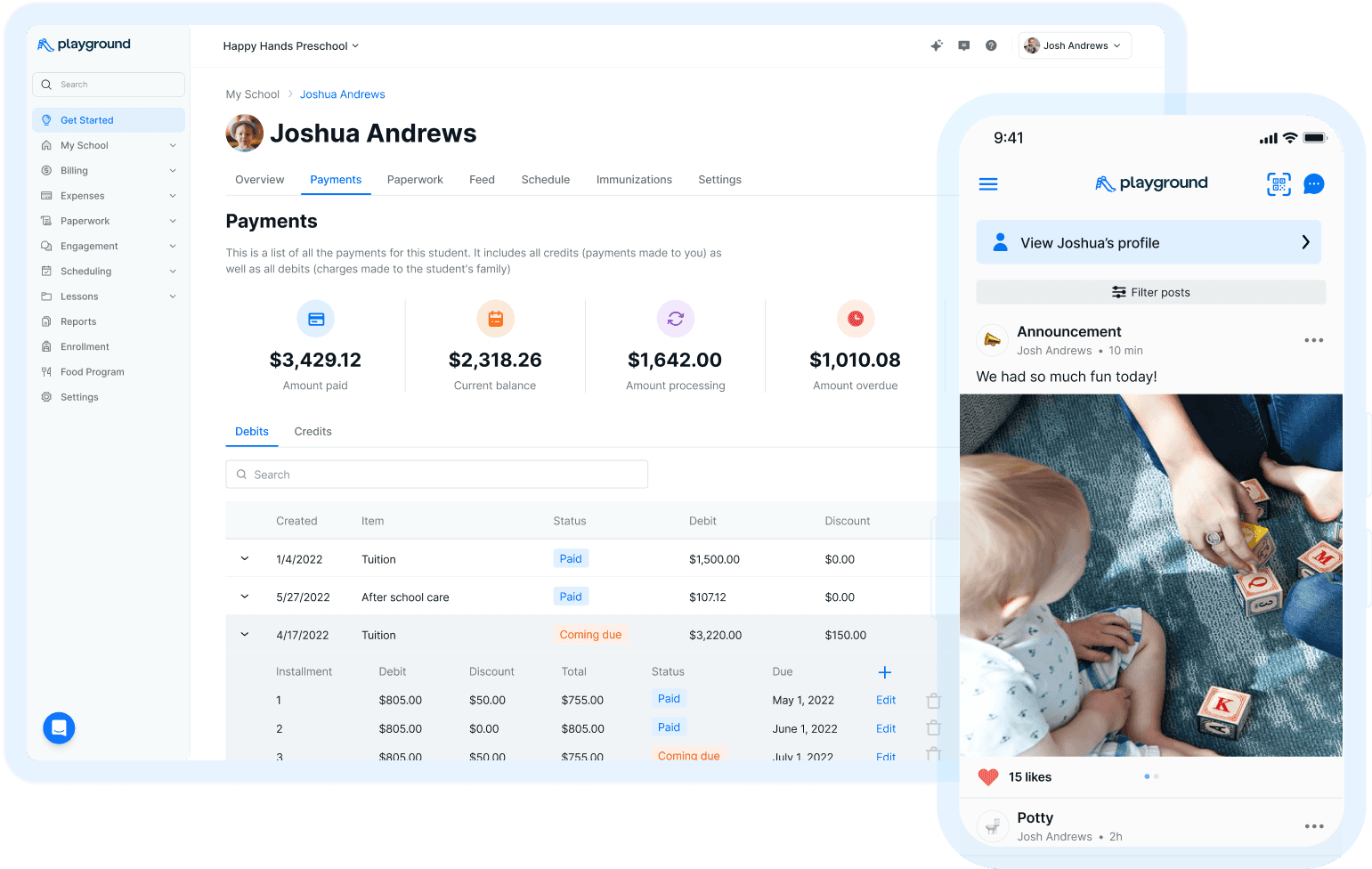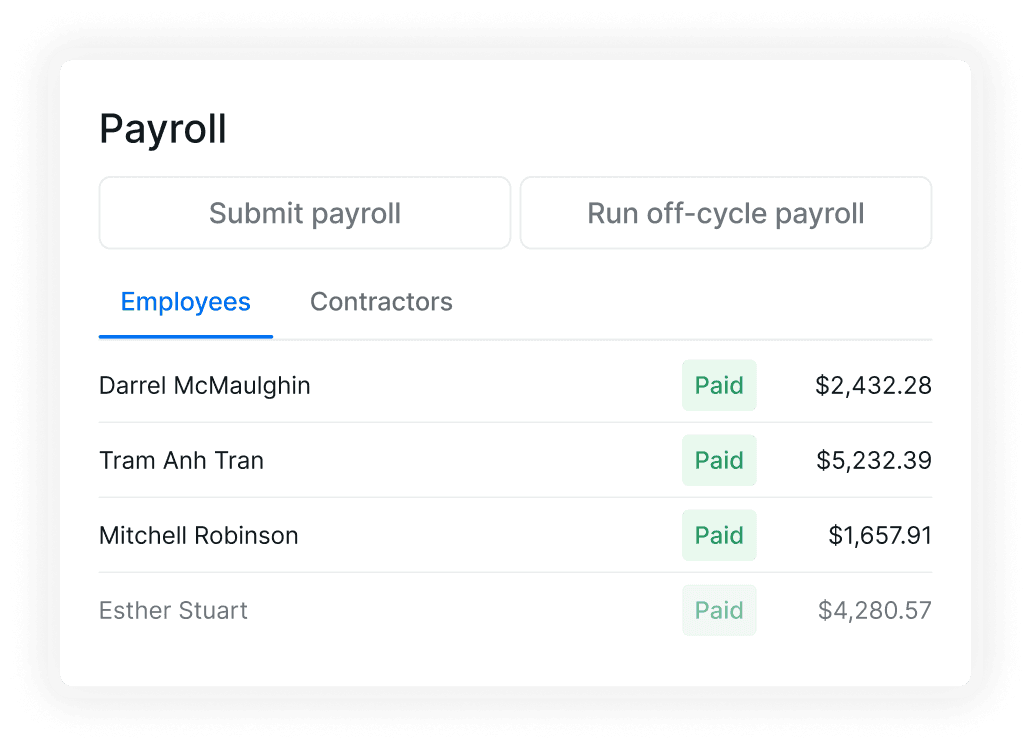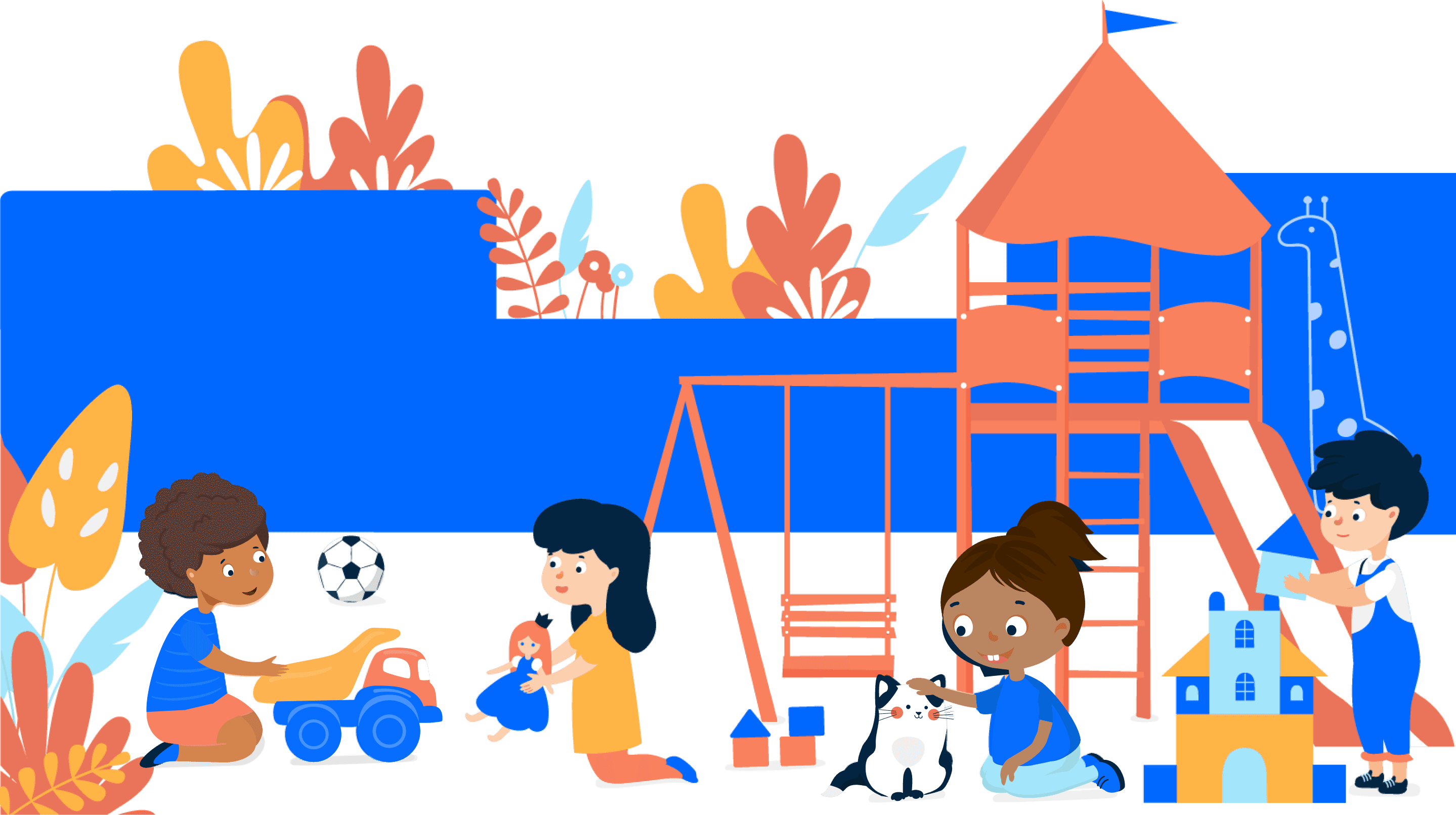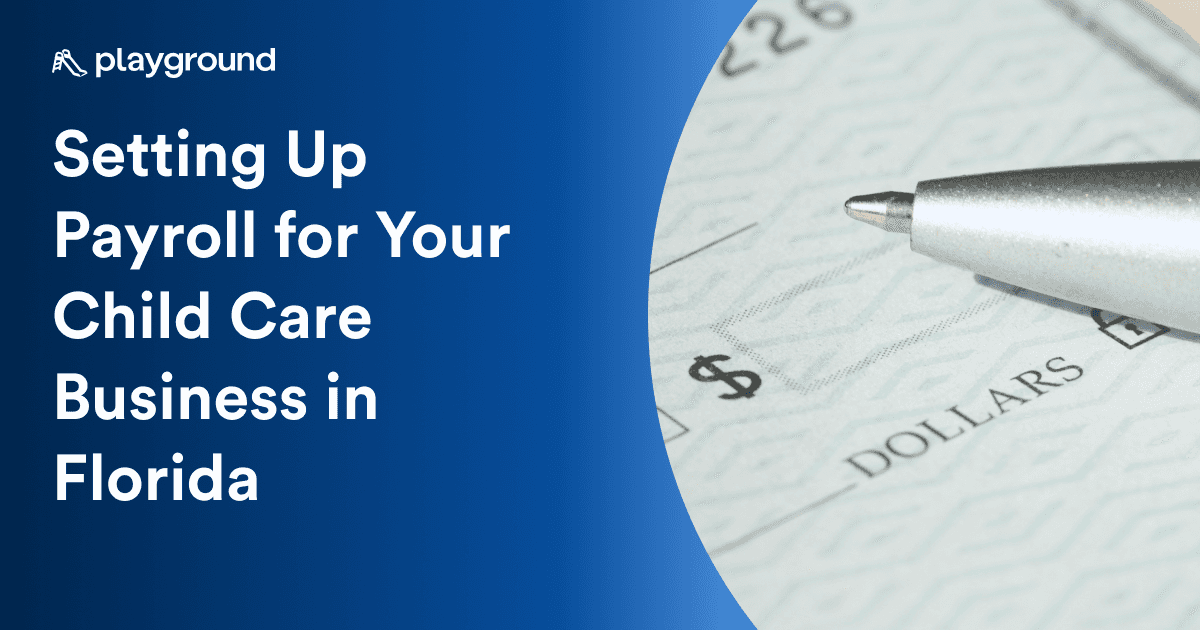Building Strong Connections: Enhancing Family Engagement in Early Childhood Education


Jessica Waldman

Make your families & teachers happier
All-in-one child care management platform with billing, attendance, registration, communication, payroll, and more!
5.0 Rating

Make your families & teachers happier
All-in-one child care management platform with billing, attendance, registration, communication, payroll, and more!
5.0 Rating
Early childhood education lays the foundation for a child's future success, and the impact of high-quality education during these formative years cannot be overstated. While you as educators and child care professionals play a vital role in shaping young minds, you are not alone in this endeavor. The active involvement of parents and guardians in early childhood education settings is crucial for creating a holistic and enriching learning environment. In this blog post, we will explore the profound significance of family engagement in early childhood education and offer you actionable ways to improve and enhance family engagement at your child care center.
Foster Open and Supportive Communication Channels
Effective communication is at the heart of strong family engagement. You can promote open and supportive communication channels by:
a) Establishing regular two-way communication
Initiate regular communication with families, sharing updates on their child's progress, activities, and achievements. Encourage families to share their concerns, questions, and insights regarding their child's development.
b) Embracing diverse communication methods
Recognize that families have different preferences for communication. Utilize a variety of channels such as emails, newsletters, parent-teacher conferences, online platforms, and social media to accommodate different communication styles and needs. Playground’s communication feature allows you to direct message parents, share photos and videos with real-time notifications, and send out announcements as SMS messages, emails, and/or in-app notifications so that parents and guardians can stay informed at all times.
c) Active listening
When interacting with families, actively listen to their perspectives, concerns, and aspirations for their child. Demonstrate empathy, respect, and understanding to build trusting relationships.
Create a Welcoming and Inclusive Environment
As child care professionals, you can can create a welcoming and inclusive environment that promotes family engagement by:
a) Celebrating diverse cultures and backgrounds
Organize events, celebrations, and activities that embrace and honor the diverse cultures and backgrounds represented in the community. Encourage families to share their traditions, languages, and customs, creating a sense of belonging for all.
b) Establishing a family-friendly physical space
Ensure the child care environment is welcoming and comfortable for families. Consider setting up designated areas for family involvement, such as bulletin boards showcasing family photos, children's artwork, and a lending library for parents.
c) Offering flexible involvement opportunities
Recognize that families have different schedules and commitments. Provide a variety of involvement opportunities, including volunteering in the classroom, participating in family workshops, contributing to decision-making committees, or supporting special events.
Collaborate and Engage Families in the Learning Process
You can actively engage families in the learning process by:
a) Sharing resources and educational materials
Provide families with resources, tips, and strategies to support their child's learning at home. Share age-appropriate activities, book recommendations, and online resources that align with the curriculum.
b) Encouraging family involvement in learning activities
Invite families to participate in classroom activities, such as storytelling sessions, science experiments, or art projects. Provide guidance on how families can extend these learning experiences at home.
c) Seeking family input and involvement in decision-making
Include families in decision-making processes by seeking their input on program policies, curriculum planning, and evaluating the effectiveness of family engagement initiatives. This involvement empowers families and strengthens their sense of ownership in their child's education.
Provide Educational Workshops and Parent Education
You can offer educational workshops and parent education programs to empower families in their role as partners in education. Consider:
a) Organizing workshops on child development topics:
Offer workshops on relevant topics such as early literacy, positive discipline strategies, nutrition, and fostering social-emotional skills. Collaborate with community resources and experts to provide valuable information and support.
b) Facilitating parent support groups:
Create opportunities for families to connect and support each other by organizing parent support groups. These groups can offer a platform for sharing experiences, discussing challenges, and providing mutual encouragement.
c) Offering parent education materials:
Develop and distribute informative materials, such as newsletters, handouts, or online resources, that provide parents with practical tips, research-based insights, and strategies for supporting their child's learning and development. You can share these materials via Playground’s in-app family feed.
Family engagement is a cornerstone of early childhood education, and as child care professionals, you play a vital role in fostering and enhancing this engagement. By fostering open and supportive communication, creating welcoming environments, collaborating and engaging families in the learning process, and providing educational workshops and parent education, you can strengthen family partnerships and create an inclusive educational ecosystem that nurtures each child's growth and development.
Remember, when educators and families work hand in hand, the impact is immeasurable, shaping brighter futures for our children. Let us continue to prioritize family engagement and celebrate the transformative power it holds in early childhood education.
Early childhood education lays the foundation for a child's future success, and the impact of high-quality education during these formative years cannot be overstated. While you as educators and child care professionals play a vital role in shaping young minds, you are not alone in this endeavor. The active involvement of parents and guardians in early childhood education settings is crucial for creating a holistic and enriching learning environment. In this blog post, we will explore the profound significance of family engagement in early childhood education and offer you actionable ways to improve and enhance family engagement at your child care center.
Foster Open and Supportive Communication Channels
Effective communication is at the heart of strong family engagement. You can promote open and supportive communication channels by:
a) Establishing regular two-way communication
Initiate regular communication with families, sharing updates on their child's progress, activities, and achievements. Encourage families to share their concerns, questions, and insights regarding their child's development.
b) Embracing diverse communication methods
Recognize that families have different preferences for communication. Utilize a variety of channels such as emails, newsletters, parent-teacher conferences, online platforms, and social media to accommodate different communication styles and needs. Playground’s communication feature allows you to direct message parents, share photos and videos with real-time notifications, and send out announcements as SMS messages, emails, and/or in-app notifications so that parents and guardians can stay informed at all times.
c) Active listening
When interacting with families, actively listen to their perspectives, concerns, and aspirations for their child. Demonstrate empathy, respect, and understanding to build trusting relationships.
Create a Welcoming and Inclusive Environment
As child care professionals, you can can create a welcoming and inclusive environment that promotes family engagement by:
a) Celebrating diverse cultures and backgrounds
Organize events, celebrations, and activities that embrace and honor the diverse cultures and backgrounds represented in the community. Encourage families to share their traditions, languages, and customs, creating a sense of belonging for all.
b) Establishing a family-friendly physical space
Ensure the child care environment is welcoming and comfortable for families. Consider setting up designated areas for family involvement, such as bulletin boards showcasing family photos, children's artwork, and a lending library for parents.
c) Offering flexible involvement opportunities
Recognize that families have different schedules and commitments. Provide a variety of involvement opportunities, including volunteering in the classroom, participating in family workshops, contributing to decision-making committees, or supporting special events.
Collaborate and Engage Families in the Learning Process
You can actively engage families in the learning process by:
a) Sharing resources and educational materials
Provide families with resources, tips, and strategies to support their child's learning at home. Share age-appropriate activities, book recommendations, and online resources that align with the curriculum.
b) Encouraging family involvement in learning activities
Invite families to participate in classroom activities, such as storytelling sessions, science experiments, or art projects. Provide guidance on how families can extend these learning experiences at home.
c) Seeking family input and involvement in decision-making
Include families in decision-making processes by seeking their input on program policies, curriculum planning, and evaluating the effectiveness of family engagement initiatives. This involvement empowers families and strengthens their sense of ownership in their child's education.
Provide Educational Workshops and Parent Education
You can offer educational workshops and parent education programs to empower families in their role as partners in education. Consider:
a) Organizing workshops on child development topics:
Offer workshops on relevant topics such as early literacy, positive discipline strategies, nutrition, and fostering social-emotional skills. Collaborate with community resources and experts to provide valuable information and support.
b) Facilitating parent support groups:
Create opportunities for families to connect and support each other by organizing parent support groups. These groups can offer a platform for sharing experiences, discussing challenges, and providing mutual encouragement.
c) Offering parent education materials:
Develop and distribute informative materials, such as newsletters, handouts, or online resources, that provide parents with practical tips, research-based insights, and strategies for supporting their child's learning and development. You can share these materials via Playground’s in-app family feed.
Family engagement is a cornerstone of early childhood education, and as child care professionals, you play a vital role in fostering and enhancing this engagement. By fostering open and supportive communication, creating welcoming environments, collaborating and engaging families in the learning process, and providing educational workshops and parent education, you can strengthen family partnerships and create an inclusive educational ecosystem that nurtures each child's growth and development.
Remember, when educators and families work hand in hand, the impact is immeasurable, shaping brighter futures for our children. Let us continue to prioritize family engagement and celebrate the transformative power it holds in early childhood education.
Early childhood education lays the foundation for a child's future success, and the impact of high-quality education during these formative years cannot be overstated. While you as educators and child care professionals play a vital role in shaping young minds, you are not alone in this endeavor. The active involvement of parents and guardians in early childhood education settings is crucial for creating a holistic and enriching learning environment. In this blog post, we will explore the profound significance of family engagement in early childhood education and offer you actionable ways to improve and enhance family engagement at your child care center.
Foster Open and Supportive Communication Channels
Effective communication is at the heart of strong family engagement. You can promote open and supportive communication channels by:
a) Establishing regular two-way communication
Initiate regular communication with families, sharing updates on their child's progress, activities, and achievements. Encourage families to share their concerns, questions, and insights regarding their child's development.
b) Embracing diverse communication methods
Recognize that families have different preferences for communication. Utilize a variety of channels such as emails, newsletters, parent-teacher conferences, online platforms, and social media to accommodate different communication styles and needs. Playground’s communication feature allows you to direct message parents, share photos and videos with real-time notifications, and send out announcements as SMS messages, emails, and/or in-app notifications so that parents and guardians can stay informed at all times.
c) Active listening
When interacting with families, actively listen to their perspectives, concerns, and aspirations for their child. Demonstrate empathy, respect, and understanding to build trusting relationships.
Create a Welcoming and Inclusive Environment
As child care professionals, you can can create a welcoming and inclusive environment that promotes family engagement by:
a) Celebrating diverse cultures and backgrounds
Organize events, celebrations, and activities that embrace and honor the diverse cultures and backgrounds represented in the community. Encourage families to share their traditions, languages, and customs, creating a sense of belonging for all.
b) Establishing a family-friendly physical space
Ensure the child care environment is welcoming and comfortable for families. Consider setting up designated areas for family involvement, such as bulletin boards showcasing family photos, children's artwork, and a lending library for parents.
c) Offering flexible involvement opportunities
Recognize that families have different schedules and commitments. Provide a variety of involvement opportunities, including volunteering in the classroom, participating in family workshops, contributing to decision-making committees, or supporting special events.
Collaborate and Engage Families in the Learning Process
You can actively engage families in the learning process by:
a) Sharing resources and educational materials
Provide families with resources, tips, and strategies to support their child's learning at home. Share age-appropriate activities, book recommendations, and online resources that align with the curriculum.
b) Encouraging family involvement in learning activities
Invite families to participate in classroom activities, such as storytelling sessions, science experiments, or art projects. Provide guidance on how families can extend these learning experiences at home.
c) Seeking family input and involvement in decision-making
Include families in decision-making processes by seeking their input on program policies, curriculum planning, and evaluating the effectiveness of family engagement initiatives. This involvement empowers families and strengthens their sense of ownership in their child's education.
Provide Educational Workshops and Parent Education
You can offer educational workshops and parent education programs to empower families in their role as partners in education. Consider:
a) Organizing workshops on child development topics:
Offer workshops on relevant topics such as early literacy, positive discipline strategies, nutrition, and fostering social-emotional skills. Collaborate with community resources and experts to provide valuable information and support.
b) Facilitating parent support groups:
Create opportunities for families to connect and support each other by organizing parent support groups. These groups can offer a platform for sharing experiences, discussing challenges, and providing mutual encouragement.
c) Offering parent education materials:
Develop and distribute informative materials, such as newsletters, handouts, or online resources, that provide parents with practical tips, research-based insights, and strategies for supporting their child's learning and development. You can share these materials via Playground’s in-app family feed.
Family engagement is a cornerstone of early childhood education, and as child care professionals, you play a vital role in fostering and enhancing this engagement. By fostering open and supportive communication, creating welcoming environments, collaborating and engaging families in the learning process, and providing educational workshops and parent education, you can strengthen family partnerships and create an inclusive educational ecosystem that nurtures each child's growth and development.
Remember, when educators and families work hand in hand, the impact is immeasurable, shaping brighter futures for our children. Let us continue to prioritize family engagement and celebrate the transformative power it holds in early childhood education.
Playground is the only app directors need to run their early child care center. Playground manages billing, attendance, registration, communication, paperwork, reporting, and more for child care programs. 100,000+ directors, teachers, and families trust Playground to simplify their lives.
Learn more by scheduling a free personalized demo.
See what Playground can do for you
Learn how our top-rated child care management platform can make your families & teachers happier while lowering your costs



Explore more
Stay in the loop.
Sign up for Playground updates.
Stay in the loop.
Sign up for Playground updates.
Stay in the loop.
Sign up for the updates.
© 2024 Carline Inc. All rights reserved.

© 2024 Carline Inc. All rights reserved.

© 2024 Carline Inc. All rights reserved.

Building Strong Connections: Enhancing Family Engagement in Early Childhood Education
Published Jul 20, 2023
|




